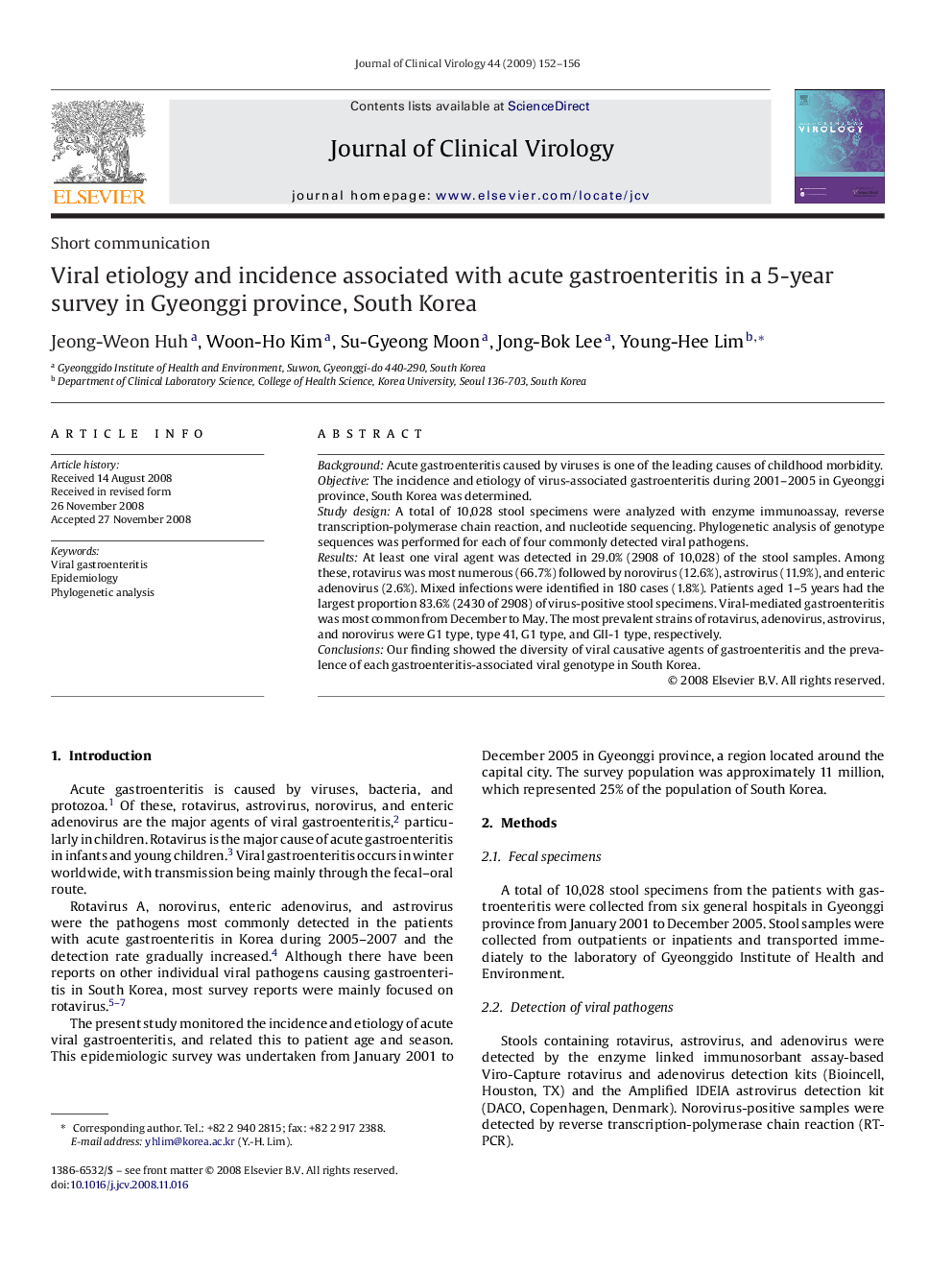| Article ID | Journal | Published Year | Pages | File Type |
|---|---|---|---|---|
| 3370158 | Journal of Clinical Virology | 2009 | 5 Pages |
BackgroundAcute gastroenteritis caused by viruses is one of the leading causes of childhood morbidity.ObjectiveThe incidence and etiology of virus-associated gastroenteritis during 2001–2005 in Gyeonggi province, South Korea was determined.Study designA total of 10,028 stool specimens were analyzed with enzyme immunoassay, reverse transcription-polymerase chain reaction, and nucleotide sequencing. Phylogenetic analysis of genotype sequences was performed for each of four commonly detected viral pathogens.ResultsAt least one viral agent was detected in 29.0% (2908 of 10,028) of the stool samples. Among these, rotavirus was most numerous (66.7%) followed by norovirus (12.6%), astrovirus (11.9%), and enteric adenovirus (2.6%). Mixed infections were identified in 180 cases (1.8%). Patients aged 1–5 years had the largest proportion 83.6% (2430 of 2908) of virus-positive stool specimens. Viral-mediated gastroenteritis was most common from December to May. The most prevalent strains of rotavirus, adenovirus, astrovirus, and norovirus were G1 type, type 41, G1 type, and GII-1 type, respectively.ConclusionsOur finding showed the diversity of viral causative agents of gastroenteritis and the prevalence of each gastroenteritis-associated viral genotype in South Korea.
